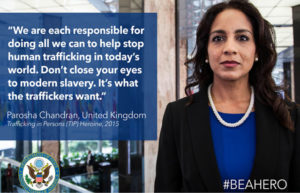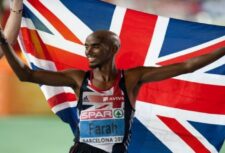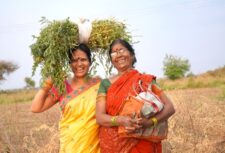Disclaimer: This article is more than 8 years old, and may not include the most up-to-date information or statistics. Please verify information with more recent sources as needed, and if you have any questions contact our Press Office.
3 August 2015
By Dr Aidan McQuade, director

In spite of the controversies that sometimes mar the publication of the US State Department Trafficking in Persons report, one decision made this year is considerably less likely to cause dissension. Parosha Chandran, Anti-Slavery International’s long-standing independent legal counsel, was made a “Trafficking in Persons Hero”.
The US State Department makes the award to Parosha this year, for “her tireless efforts to develop and advance national and international law and policy on human trafficking in the United Kingdom and abroad, her unwavering commitment to protecting victims, and her unparalleled achievement in providing legal services to survivors of modern slavery.”
I first met Parosha in 2009, but she had been working for years prior with Anti-Slavery and others on the issues of human trafficking and slavery. Here are only some of her achievements.
In 2007 she had brought the SB Moldova case, which established refugee protection rights for trafficking victims and changed English law and policy.
The following year, in the R v O case, she helped to establish the non-punishment principle for victims of trafficking saying that victims of trafficking should not be prosecuted for crimes forced to commit as a direct consequence of trafficking. The Courts of Appeal overturned the criminal conviction of a trafficked Nigerian girl sentenced to eight months imprisonment for using false documents to flee her trafficker in the UK and escape abroad.
Also in 2008 Parosha brought the case of M v UK to the European Court of Human Rights and forced the UK to offer protection to a severely traumatised teenager who had been brutally sex-trafficked and whose own child had been stolen by her traffickers. Until this successful intervention, the UK had thought it sensible and civilised to return M to Uganda where she had nothing and no-one and where her traffickers certainly lay in wait.
Parosha has also been involved in setting precedents on the rights of victims , including ‘Patience’s Case’ in 2009 in which she exposed the Metropolitan Police failure’s to comply with its duty under the European Convention on Human Rights to investigate and prosecute human trafficking.
It was this case which inspired Anti-Slavery International patron Baroness Young of Hornsey’s successful campaign in Parliament to make forced labour a stand-alone criminal offence in the UK.
Then came the landmark R v L and others case in 2013, which established that the non-punishment principle extends to those who are forced to commit drugs offences such as cannabis cultivation. She later confided to friends that the case ‘nearly finished her off’, such was the force of the opposition she faced.
Across the diversity of her work there is a consistent theme: she is on the side of those who have been trapped, exploited or injured by the powerful, whether they be criminal traffickers, or uninterested, unempathetic or racist agents of the state.
Parosha is one of those people who shows what can be achieved when talented professionals ally their skills to their consciences to challenge those who thoughtlessly or deliberately hurt those who are more vulnerable.
Parosha’s efforts to continuously seek higher standards in the law for the vulnerable and dispossessed has made the world a little more safe for the women, children and men who are victims of slavery in today’s world.
It is people like her, who through hard work and grit help twist the moral arc of history towards justice. If that is not worthy of an award, well then I do not know what is.
Follow Aidan on twitter: @the_mcquade





